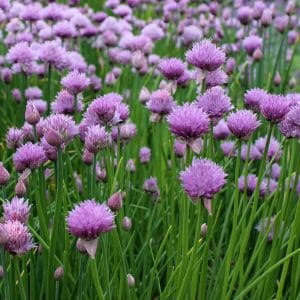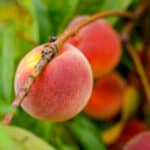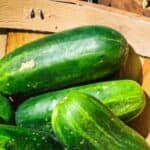If you want to boost your garden’s health and get more from your plants, knowing the right companion plants for chives can help a lot. Chives work well with many plants because they repel pests, attract pollinators, and even improve the taste and growth of nearby veggies and flowers. Pairing chives with the right plants can make your garden more productive and easier to care for.
This post may contain affiliate links.
You’ll find that chives are great friends to tomatoes, carrots, and many herbs, but they don’t get along well with beans or peas. Choosing the best companions helps you avoid problems and enjoy a healthier garden with less effort. Keep reading to discover which plants make the best neighbors for your chives.
Related Article: Companion Plants for Radishes to Boost Growth and Flavor
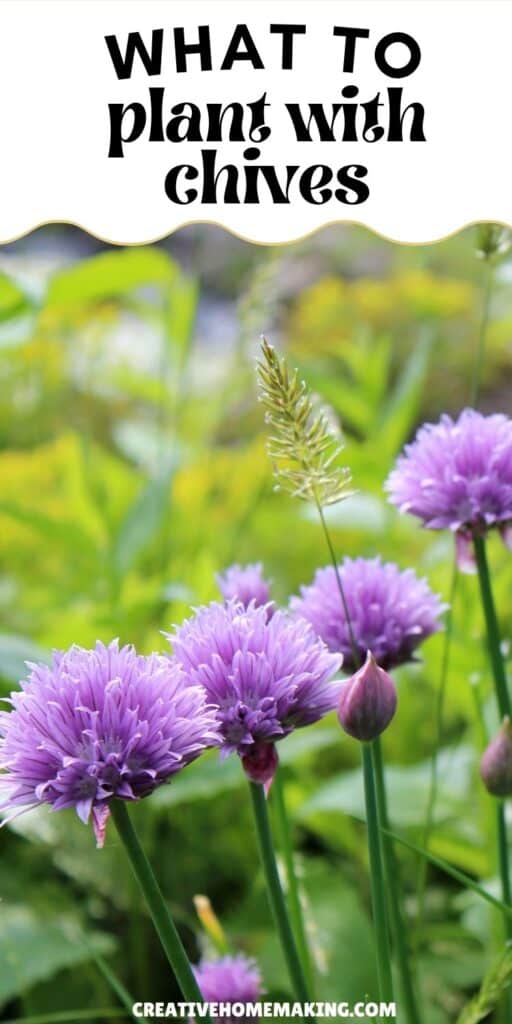
Best Companion Plants for Chives
Chives work well with many plants, helping to keep pests away and improve growth. You can grow them with certain vegetables, herbs, and fruit to get the most from your garden. Some plants even benefit from chives’ scent or the shade they provide.
Related Article: How to Grow Chives Easily in Your Home Garden
Top Vegetables to Grow with Chives
Chives make a great companion for vegetables like tomatoes, carrots, and brassicas (like cabbage and broccoli). Their strong smell helps keep pests like aphids and carrot flies away. Tomatoes can grow better and taste sweeter when planted near chives.
Carrots enjoy chives nearby because chives protect them from bad insects. Brassicas, such as cabbage, also benefit from fewer pests around when chives are close. Avoid planting chives near beans or peas since they don’t grow well together.
Related Article: Companion Plants for Raspberries to Boost Growth and Keep Pests Away
Most Beneficial Herbs to Pair with Chives
You can grow chives with many common herbs, including parsley, thyme, and cilantro. These herbs like similar soil and sunlight conditions. Chives add a mild onion flavor and keep harmful insects away, which helps your herbs stay healthy.
Celery is another great herb companion because it grows well in the same soil conditions. Celery also provides some shade and helps keep soil moist, which chives appreciate during warmer days.
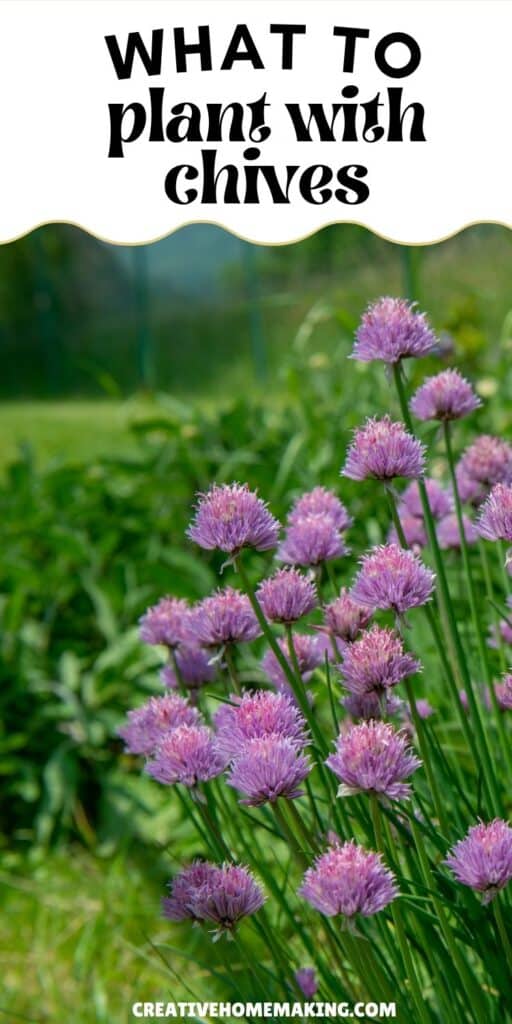
Fruit Plants That Benefit from Chives
Fruit trees and plants can gain from chives planting nearby. Apple trees are good companions because chives repel pests that usually attack fruit trees. This helps your apples grow better without needing extra sprays.
Other fruits, like strawberries and blueberries, also do well with chives around. The scent can attract pollinators and reduce harmful insect activity, so your fruit yields improve naturally. Planting chives at the base of fruit plants is a simple way to protect them while adding flavor to your garden.
Related Article: Best Companion Plants for Peonies to Brighten Your Garden Naturally
Planting and Caring for Chive Companions
To help your chives and their companion plants grow well, it’s important to think about how you space them, the right time to plant, and common mistakes you should avoid. Proper care will keep both chives and their neighbors healthy and productive.
Spacing and Placement Tips
When planting chive companions, give each plant enough room to grow. Chives need about 8 to 12 inches between plants. Place companions like tomatoes, carrots, or brassicas nearby but avoid crowding.
Keep chives near plants that benefit from their pest-repelling scent. For example, plant chives close to tomatoes or carrots to reduce aphids and carrot flies. Avoid planting chives near beans or peas, as they can stunt each other’s growth.
Place chives in full sun or light shade. Make sure their companions have similar sunlight needs. Use tables or garden markers to keep spacing clear, so plants don’t compete for nutrients.
Related Article: Companion Plants for Blueberries: Enhancing Growth and Flavor in Your Garden
Seasonal Considerations
Plant chives in early spring or fall in most climates. This timing helps them avoid extreme heat. Their companions should match the same season preference to thrive together.
Chives survive cold winters but grow best in mild weather. If you live in hot climates, plan to plant heat-sensitive companions like lettuce early in spring or late in fall to prevent bolting.
Rotate crops each season when possible. This protects your soil from pests and keeps nutrients balanced, benefiting both chives and their companions over time.
Common Mistakes to Avoid
Don’t plant chives too close to beans or peas. These plants don’t get along and can reduce each other’s growth.
Avoid overcrowding. Crowded plants stress each other and attract pests. Follow recommended spacing to give your garden airflow and room to grow.
Water carefully. Overwatering can cause root rot in chives and other plants nearby. Use well-draining soil and water when the soil feels dry to the touch.
Finally, avoid planting chives with plants needing vastly different soil or moisture levels. Keep companions with similar care needs to prevent stress in your garden.
Follow my companion planting board on Pinterest.
